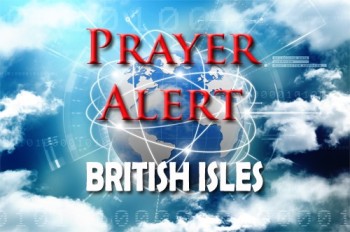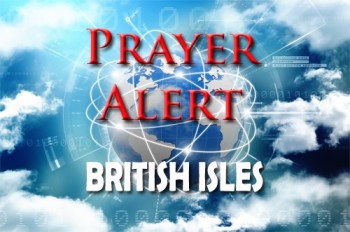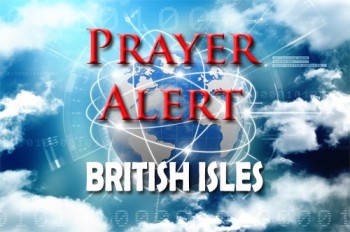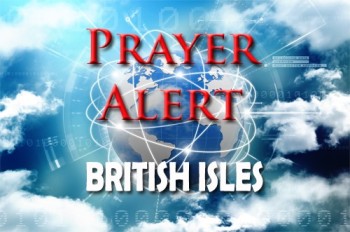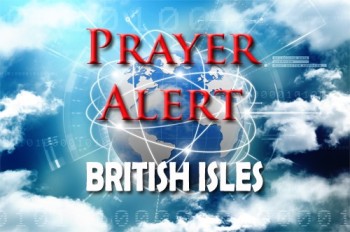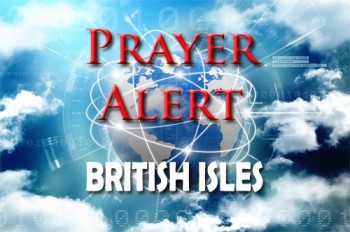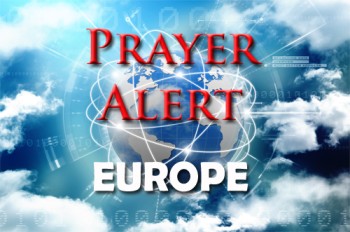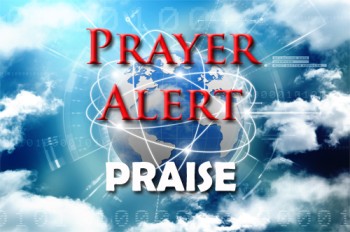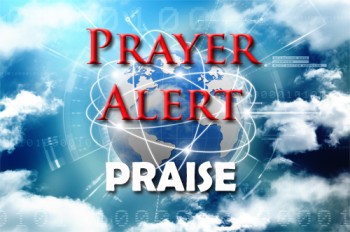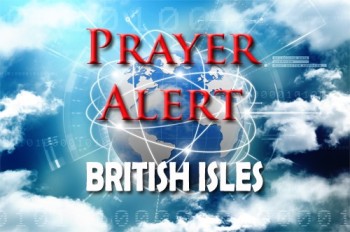Displaying items by tag: United Kingdom
Hillsborough enquiry: victims’ relatives will never get justice
A major new report has confirmed extensive police failings before and after the 1989 Hillsborough stadium disaster, which killed 97 Liverpool fans - the UK’s worst sporting tragedy. After a decade-long investigation, the Independent Office for Police Conduct found that twelve officers would have faced charges of gross misconduct had they not already retired, leaving families devastated that no one will ever be held accountable. Those who lost loved ones in the crush condemned the outcome as another profound injustice. The report also criticised the initial police review as biased and found further evidence clarifying how police decisions, including the opening of an exit gate, led to the fatal overcrowding. Previous inquests concluded that supporters had been unlawfully killed and discredited early attempts to blame fans. Despite official apologies and admissions of catastrophic failure, no officer has ever been convicted. Families say the proposed ‘Hillsborough Law’ cannot compensate for truth acknowledged without accountability.
London: nursery worker admits to many sexual assaults and indecent images
A deeply disturbing safeguarding scandal has unfolded in north London after nursery worker Vincent Chan admitted to 26 charges including sexual assault and creating severe indecent images of children in his care. The investigation began after a whistleblower raised concerns, leading police to uncover extensive, distressing evidence on Chan’s devices and on iPads at Bright Horizons nursery, which has since closed. Detectives described the case as among the most harrowing and complex they had encountered. Parents listened in tears as charges were read in court, later issuing a joint statement expressing shock, anger, and a sense of betrayal by the nursery’s management and safeguarding failures. Bright Horizons acknowledged that the abuse had occurred despite its procedures and has commissioned an independent review of its practices. Education secretary Bridget Phillipson said that her department was working with Ofsted and local leaders to assess what more can be done to keep children safe. Chan, who had passed standard DBS vetting checks, will be sentenced on 23 January.
Doctors’ appointments: Streeting and BMA in major row
A row has erupted over England’s move to require all GP surgeries to offer online booking for non-urgent appointments, with Wes Streeting accusing the British Medical Association (BMA) of acting like ‘moaning minnies’. While he praised GPs for rapidly adopting the system - now used by more than 98% of practices - the doctors’ union is concerned that patient safety is at risk. The new method of booking, which all doctors have to provide on weekdays from 8:30 am to 6:00 pm, also allows patients to ask questions, describe symptoms, and request callbacks. But the BMA says the software cannot differentiate urgent from routine needs, leaving surgeries overwhelmed and increasing the risk that serious issues will not be triaged properly. Healthwatch England raised concerns about limited patient awareness, difficulties for those less digitally literate, and some practices restricting online slots. Many GPs say they are already at capacity and fear unrealistic expectations without additional resources. The Government maintains it has invested extra funds and recruited more doctors.
Birmingham: council to press ahead with radical changes on bin collection
In Birmingham, the city council and the Unite union remain locked in a bitter deadlock as the city’s bin strike enters its twelfth month, including nine months of full walkouts. Despite the ongoing dispute, Councillor Majid Mahmood has announced the council will press ahead with major reforms to its waste service, including fortnightly collections, expanded recycling, and a new weekly food waste scheme (which all local councils have to introduce in 2026). He said that all individual employment issues had been resolved, with workers either accepting new roles, choosing voluntary redundancy, or (rarely) being made compulsorily redundant. He could not understand why Unite members remained on strike. Unite, however, has accused the council of failing to consult it properly, and insists affected workers deserve compensation for lost pay and status. While new equipment and systems are ready for rollout, neither side appears willing to compromise, leaving the city without a resolution.
Met police's huge rollout of facial recognition technology
The Government is preparing a major expansion of facial recognition technology across the UK, giving police access to passport and driving-licence photos to speed up the identification of offenders. The Met Police, which has already made 1,300 arrests and tracked more than 100 sex offenders using the technology over two years, says live facial recognition is a key tool for public safety. The Home Office has launched a ten-week consultation to shape new legislation after concerns about 'Big Brother Britain' and the erosion of civil liberties. Critics argue that safeguards remain inadequate, noting previous findings by the Equality and Human Rights Commission that the Met’s policies were 'unlawful'. Civil liberties groups warn of potential misuse, disproportionate surveillance, and a chilling effect at protests. Supporters insist that the technology is becoming more accurate, with strict oversight needed rather than abandonment. Police chiefs say it will help find dangerous offenders and missing people more quickly. The consultation will determine what safeguards are necessary and whether expanded use is proportionate to the harms being targeted.
‘Shine, Jesus shine’ remixed for Christmas campaign
The classic worship song Shine, Jesus, Shine has been newly reimagined for the UK-wide ‘Shine Your Light’ Christmas campaign, which seeks to unite thousands of believers in a shared moment of worship and national prayer. First written by Graham Kendrick in 1987, the song is one of the most recognisable modern hymns in Britain. The initiative was sparked by Christian teacher and musician Nicole Hobday, who first dreamed as a teenager of churches singing the song simultaneously. The vision resurfaced after witnessing Kendrick lead believers to sing the song as a prayer over the nation. Feeling a sense of urgency following last August’s unrest, Hobday approached Kendrick, who encouraged her to take the idea forward. The new arrangement features children’s voices, multilingual lines in Punjabi and Mandarin, a rap element, prayers, and a choral arrangement by Ken Burton. Hobday described the recording session at COM Church as deeply moving. Running from 12 to 14 December, the campaign involves around 2,000 churches and aims to mobilise 200,000 Christians to share the Gospel with two million people.
France: Paris leads the way in tackling ‘carspreading’
Across the UK and Europe, cars are steadily growing longer, wider, and heavier - a trend critics have nicknamed ‘carspreading’. SUVs in particular have surged in popularity, with their market share rising from 13% in 2011 to nearly 60% by 2025. Buyers praise them for visibility, practicality, comfort, and a sense of safety, and carmakers favour them for higher profit margins. But cities like Paris and Cardiff are pushing back, arguing that larger vehicles worsen pollution, increase road wear, and heighten risks in collisions. In Paris, after parking fees for heavy vehicles were tripled, the authorities have reported a two-thirds reduction in their numbers. Cardiff plans similar measures, gradually lowering weight thresholds for higher permit costs. Supporters say cities are too constrained to accommodate ever-bigger cars, while critics argue families rely on them for space, mobility, and accessibility. With many European roads narrower than modern vehicles, the debate highlights a growing tension between personal convenience, environmental responsibility, and urban safety.
Street preacher acquitted after being accused of hate speech
A Christian street preacher in Swindon has been acquitted of charges related to comments he made in a public space, a case which sparked wider debate about free speech and the policing of perceived hate incidents. Shaun O’Sullivan, 36, was accused of religiously aggravated intentional harassment after a Muslim family claimed his remarks about Jews and Palestine were directed personally at them because they wore hijabs. However, the prosecution case rested largely on their testimony, and CCTV footage showed only a very brief encounter with no sustained confrontation. In court, one complainant acknowledged she had not heard the full message and that her perceptions were influenced by distress over the Gaza conflict. The defence argued O’Sullivan was preaching a general Christian message - not using abusive language - and warned that criminalising public evangelism threatens long-standing freedoms. Supporters described the verdict as a vital affirmation of the right to share Christian beliefs openly in the public square.
Mitzvah Day demonstrates the power of inter-faith cooperation
The twentieth Mitzvah Day in the UK demonstrated the power of shared service to strengthen interfaith relationships at a time when tensions have risen nationwide. Volunteers from Jewish, Christian and Muslim communities joined together in more than 200 projects, including preparing food for night shelters and refugee support at Alyth Synagogue in Golders Green. Organisers emphasised that practical cooperation builds trust where dialogue alone can struggle, particularly following strained relations linked to conflict in the Middle East. Founder Laura Marks, who also co-created the Nisa-Nashim network for Jewish and Muslim women, celebrated ongoing friendships and urged continued collaboration beyond the annual event. Leaders, including Rabbi Josh Levy and Bishop Anderson Jeremiah, noted that initiatives like Mitzvah Day help to deepen community bonds and provide resilient foundations for future peacebuilding. Participants said that acts of kindness reflect religious responsibility to seek the good of others, even amid political or social division.
Budget: the main headlines
Rachel Reeves has delivered her second Budget against a backdrop of weak economic growth, high inflation and tightening household finances. Seeking to raise revenue without triggering an inflation spike, she avoided the previously signalled rise in income tax rates and instead relied on a wide mix of indirect tax changes and frozen thresholds. Measures include new or higher taxes on wealth, property, tourism, gambling and high-sugar drinks, along with a future per-mile charge for electric vehicles. A major welfare change will see the two-child benefit cap scrapped in April 2026, while benefits rise in line with inflation. Business incentives are also adjusted, including changes to capital allowances and dividend taxation. She has also raised the basic living wage significantly: see Critics warn the strategy adds complexity and prolongs record-high tax levels, raising concerns that further tax rises may still be needed. Reeves positioned the Budget as a necessary step to stabilise public finances while supporting workers and the most vulnerable during economic uncertainty.
